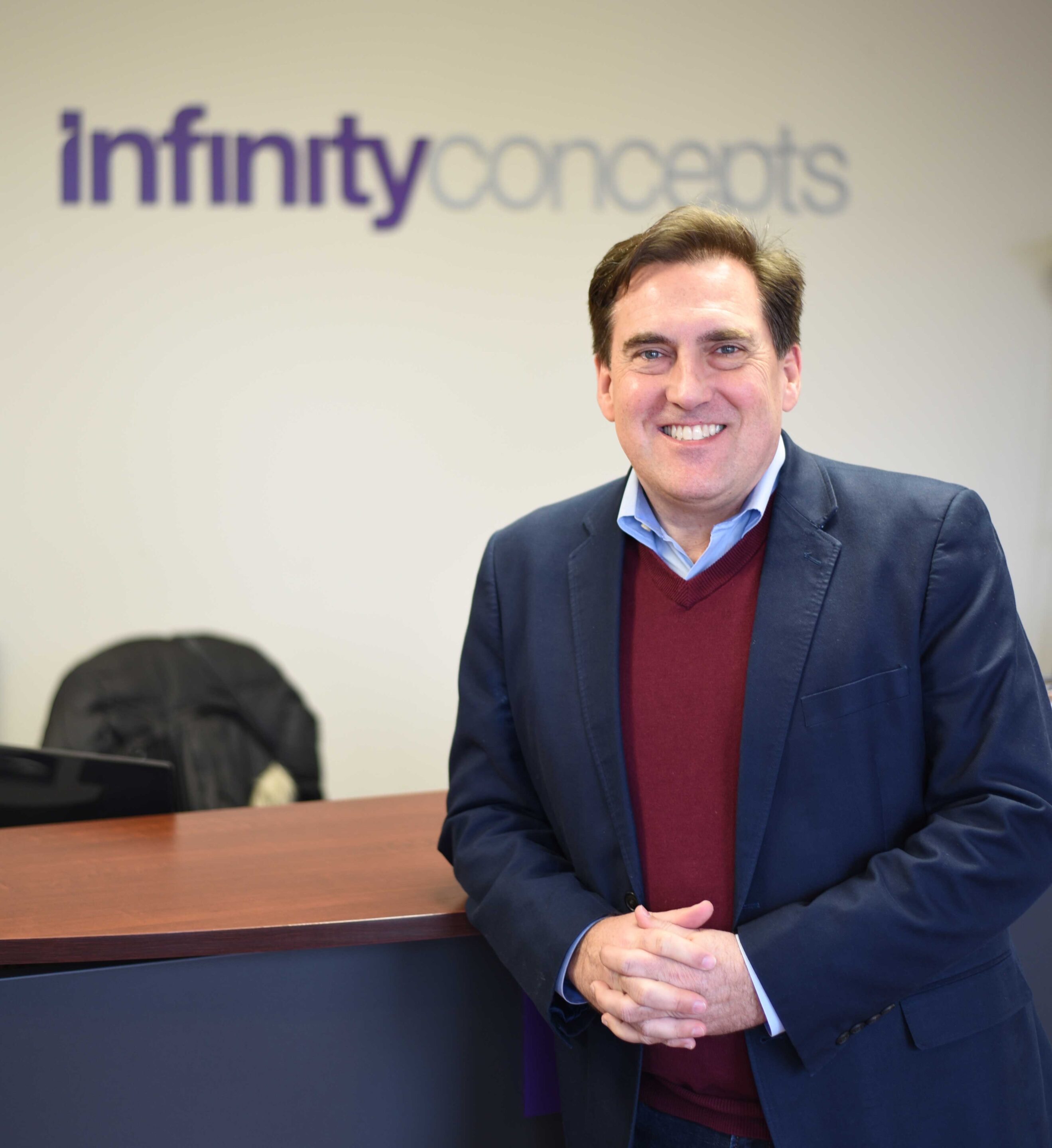EXPORT, PA – Because of COVID-19, more than three out of every four evangelical Protestants in the US have experienced watching church online instead of attending in person. More important is that going forward, the majority want to make online viewing part of their normal church experience.
These findings come from the new report, The Ripple Effect: Congregations, COVID, and the Future of Church Life, from Infinity Concepts and Grey Matter Research. The joint study, which included over 1000 American Evangelical Protestants, examines the impact of the COVID-19 pandemic on church attendance and attitudes about the experience. Most notably, the study explores how evangelicals want to attend church in the future.
Nearly nine out of ten evangelicals (87%) were attending church on at least a semi-regular basis prior to the outbreak of the pandemic. Among churchgoers, 89% stopped attending for at least a short time due to the pandemic, and more than three out of four viewed church services online as one of the substitutes for in-person attendance.
This experience with viewing church online led to a number of important developments. “One statistic that really stands out to me from this study is that a surprisingly large number of evangelicals do not necessarily see a significant advantage to attending in-person services,” says Mark Dreistadt, Infinity Concepts Founder and President. “We found that 45% of those who experienced online church services now believe that worship online is equal or superior to the in-person experience in at least one of the eight areas we explored.”
The two areas in which online viewing provides a perceived advantage are personal comfort (26% said online viewing is superior to in-person attendance in this area) and the ability to experience different churches (24%).
Where evangelicals are most likely to see in-person church as the superior experience were in their level of connection/engagement with the church (81%), having an authentic worship experience (73%), the music/singing (69%), and the ability to give the service their full attention (67%).
Among those who viewed online services as a substitute for in-person church, 19% not only viewed services from their own church, but also from at least one church they did not regularly attend prior to the pandemic. Another 13% only viewed services from a church other than their own, but this may have been because their regular church did not offer online services.
“One of the most fascinating and potentially important findings was how many evangelicals took the opportunity to ‘digitally visit’ other churches, even though their own church was streaming services,” says Ron Sellers, President of Grey Matter Research & Consulting. “One has to wonder whether this will ultimately lead to ‘church nomads’ who surf the internet for new church experiences rather than putting down roots and becoming part of a church community.”
The study finding with the greatest potential to impact churches going forward has to do with evangelicals’ future plans. With COVID restrictions ever-changing, infections continuing, and no true end to the pandemic in sight, online church services are going to be a necessary option for the foreseeable future. For most evangelicals who experienced it, the option to worship online is also one they hope will continue long after the pandemic is behind us.
“Our findings show that only 44% of evangelical Protestants who viewed services online want to return exclusively to in-person worship once the pandemic is over,” Dreistadt noted. “That means 56% would at least like to keep their options open in the future. That’s 21 million evangelical adults.”
This desire raises a lot of strategic questions for churches. If online becomes an accepted option for many evangelicals, how will that impact giving? How will it impact Sunday school, youth and children’s programs, and other traditionally in-person activities that may not be available online? What will happen with smaller churches that may not have a high-quality streaming service, or even any at all?
Much remains unknown about the lasting impact of online services as a substitute for in-person attendance. But Grey Matter and Infinity Concepts hope their partnership on this research helps churches, denominations, and ministry leaders think and plan strategically.
“Our study raised a lot of ‘what ifs’ for the future direction of congregations,” Sellers noted. “The pandemic gave millions of evangelicals an online church experience whether they wanted it or not—and many found out that they wanted it, at least occasionally. It’s time to start talking about how this will impact the future for churches.”
To request a copy of the full report, please contact Darrell Law, Infinity Concepts VP and Chief Growth Officer at darrell@infinityconcepts.com or 724.930.2801.
About Infinity Concepts:
Infinity Concepts is a brand communication agency that inspires people of faith to action through consulting, branding, fundraising, public relations, creative, traditional media, and digital media. With almost 20 years of experience, Infinity Concepts specializes in helping their clients effectively reach and engage the Christian community.
About Grey Matter Research:
Grey Matter Research is a marketing research and consumer insights company with extensive experience serving both the charitable and religious sectors. The company conducts consumer insights work that helps organizations make wiser, more informed decisions based on knowledge rather than suppositions.
- Evangelicals in the Public Arena: 36% of American Evangelicals Say They Not Are Politically Conservative - March 12, 2024
- The Spiritual Journey: 72% of American Evangelicals Came to Faith Before Adulthood - January 23, 2024
- New Research Offers Fresh Insights in Fundraising Ad Design: Use of Scripture and Watchdog Charity Ratings Impact Response - December 5, 2023

